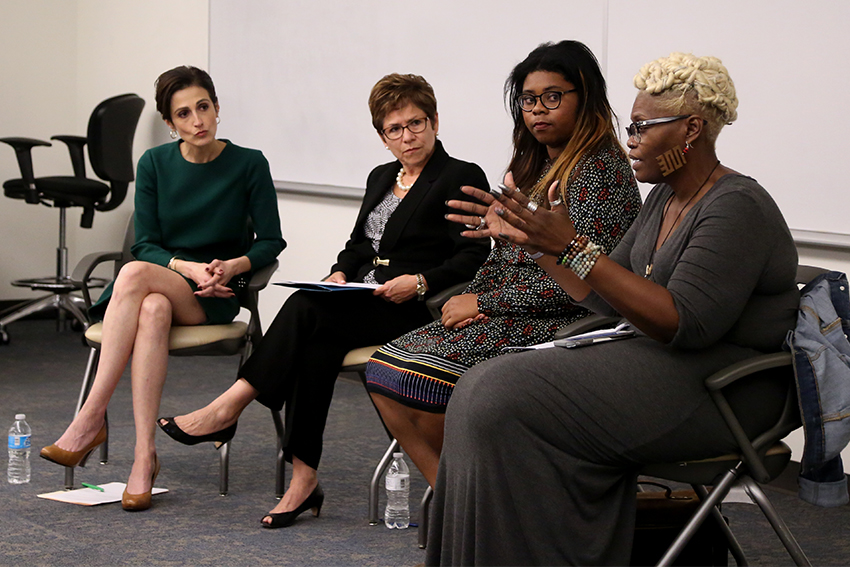The Feminist Policy Alliance hosted a panel Monday about Texas’ maternal mortality crisis and its disproportionate effects on women of color.
Texas has the worst maternal mortality rate of any state in the U.S., said Dr. Victoria DeFrancesco Soto, panel moderator. According to a 2016 report from the Texas Maternal Mortality and Morbidity Task Force, black mothers made up 11 percent of Texas live births but accounted for nearly 29 percent of all maternal deaths from 2011 to 2012. Dr. Soto began the panel with a direct statement of the current maternal health climate in Texas.
“We are the worst,” Soto said. “If Texas were a country, we would have the worst maternal mortality rate than any other developed country.”
Evelyn Delgado, president of family planning nonprofit Healthy Futures of Texas, spoke in the panel about the data she works with.
“The first time I heard maternal mortality, I was like, ‘Oh, they’re dying in the hospital when they’re having a baby,’ (but) no, that’s not where they’re dying,” Delgado said. “As more data was reviewed … we realize that it’s really drug overdose that’s the number one cause.”
Panelist Marsha Jones, executive director for advocacy group the Afiya Center, said conversations like these frustrate her because the discussion of data removes the human element from the issue.
“We’ve got to find a way to prioritize and not politicize women’s lives,” Jones said. “99 percent of the women that I talk to everyday would not have understood one thing that happened on this panel today.”
Marissa Evans, health care reporter for the Texas Tribune and a panelist, said legislators don’t know as much about the issues as they should.
“You have people who get elected who don’t read these (health reports),” Evans said. “You’d be surprised how many (legislators) don’t read.”
Cassie Davis, a public affairs graduate student who worked as the public health intern for a Texas state senator during the legislative session and panel attendee, said she was not surprised with what she saw.
“A lot of (legislators) don’t necessarily care about women’s issues, but they say they do,” Davis said. “They can say ‘We’re working really hard for African American women to have access to prenatal health care,’ but there’s actually no legislative action being taken.”
Eunice Ko, a public affairs graduate student and panel attendee, said she could feel the frustration the panelists feel because there tends to be a lot of conversation, but not enough action.
“(Lawmakers) focus so much — here in Texas — about the value of life. So if we’re really going to uphold that philosophy then I think that it needs to echo in all areas, including maternal mortality.”





















